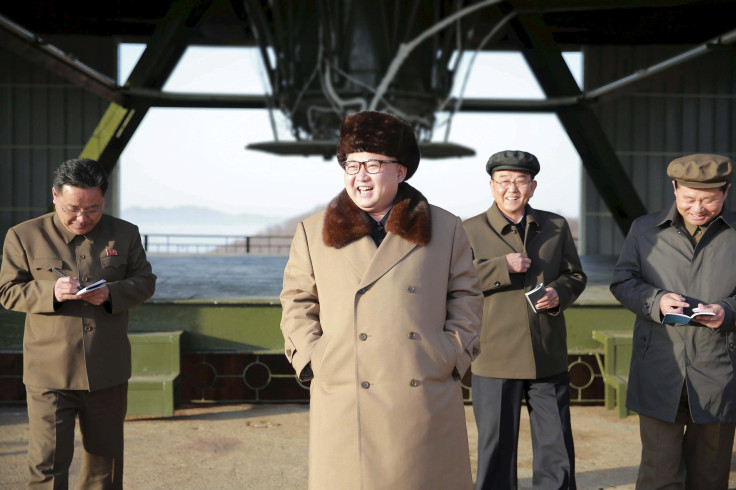North Korea Missile Test: Could US Go To War With Kim Jong Un To Prevent Launch?

Military experts and U.S. officials believe President-elect Donald Trump may have drawn a so-called “red line” for North Korea leader and authoritarian Kim Jong Un when he responded to reports earlier this week of a possible intercontinental ballistic missile (ICBM) by tweeting: “It won’t happen!”
How the Trump administration intends to work with or deal with the volatile Kim remains to be seen, but one adviser for the Republican’s transition team said he thought “a period of serious sanctions had to be a major part of any discussion on the options available here,” the unnamed official told Reuters Tuesday.
Kim's announcement Sunday that his regime is close to testing its first ICBM raised serious concerns not only in the U.S. but across Asia and has put Trump's conduction of foreign policy via social media under the microscope once again.
“We need to take note of the fact that this is the first New Year’s speech where Kim Jong Un mentioned an intercontinental ballistic missile,” senior research fellow at the Sejong Institute in South Korea Cheong Seong-chang told The New York Times.
It’s possible Trump, who ran a successful campaign based on shaking things up in Washington and with U.S. policies abroad, is once again bucking foreign policies norms without fully understanding the handful of options for dealing with Kim and his unstable government, according to experts and unnamed US officials.
"This was a foolhardy tweet for Trump to send given the enormous challenges of constraining North Korea’s nuclear and missile programs. I think this could be something that comes back to haunt him,” co-director of the Nuclear Policy Program at the Carnegie Endowment for International Peace James Acton said.
Essentially, experts say Trump has only three military options when it comes to actually preventing North Korea from testing an ICBM. Otherwise, serious diplomatic negotiations would be necessary.
The unnamed expert told Reuters the U.S. military could strike before the missile is launched, intercept it during its flight or allow the launch to happen. Each is problematic with a direct strike on North Korea likely to be a massive military undertaking that would take a long time.
The Obama Administration faced a similar issue when it came to Syria and its use of chemical weapons. President Barack Obama warned Syrian President Bashar Assad not to use such deadly force by drawing the “red line” in 2012, which was crossed anyway and the country delved deeper into its civil war. It didn’t help the administration’s cause that Russia was firmly and still is behind Assad’s regime
In the same vein, with Japan and South Korea close regional allies and China already facing Trump’s wrath, delivering an ultimatum to the reportedly unstable and violent Kim may not bode well for countries so close to North Korea.
Instead, a combination of passive military maneuvers and negotiations may be Trump’s best bet.
"How to stop this is of course difficult. It's a combination of diplomacy (to get a freeze), sanctions (Chinese ones and Treasury), moving more military assets to the region for extended deterrence, strike options, and integrated missile defense. That's what would be on my menu," Victor Cha, an aide to former President George W. Bush, said.
© Copyright IBTimes 2024. All rights reserved.





















